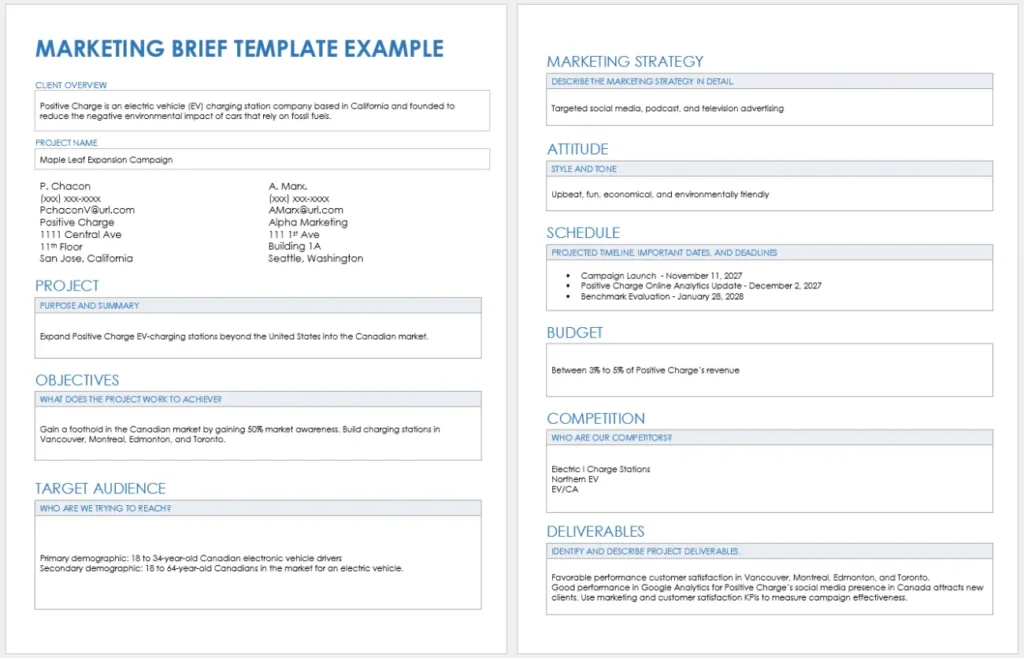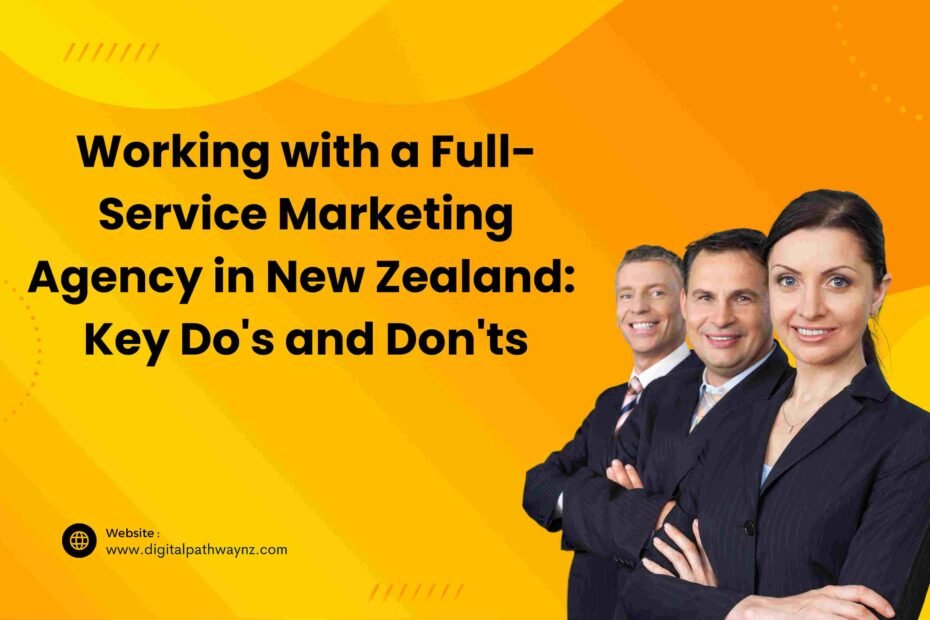Choosing to work with a full-service marketing agency in New Zealand can be a game-changer for your business. However, to ensure you get the most out of this partnership, it’s crucial to approach it with the right mindset and understanding. Here’s a practical guide on what to do, what to avoid, the typical procedures, and an idea of the costs involved.
DO’s
- Clearly Define Your Goals
- Why: Your marketing agency can only deliver the results you want if you clearly articulate what those results are. Whether you’re looking to increase brand awareness, drive more website traffic, or boost sales, your goals need to be specific, measurable, and time-bound.
- How: Start by having a detailed conversation with your agency about your short-term and long-term objectives. This will help them tailor their strategies to align with your business needs.
- Maintain Open Communication
- Why: Regular communication ensures that both parties are on the same page, allowing the agency to adapt strategies based on your feedback and market changes.
- How: Schedule regular meetings or check-ins. Use these sessions to review progress, discuss any changes in your business, and provide feedback on the work done so far.
- Trust Their Expertise
- Why: A full-service marketing agency brings a wealth of experience across various marketing disciplines. Trusting their expertise allows them to implement the best strategies for your brand.
- How: While it’s important to have input, avoid micromanaging. Instead, focus on setting clear expectations and allowing the agency to apply their knowledge and skills.
- Provide Timely Feedback
- Why: Timely feedback helps the agency to make necessary adjustments and keep the project on track.
- How: Be proactive in reviewing their work and providing constructive feedback. The faster you respond, the quicker they can pivot if needed.
- Measure Performance
- Why: Measuring the performance of your campaigns helps determine whether the agency’s strategies are effective and delivering the expected ROI.
- How: Work with the agency to establish key performance indicators (KPIs) and use tools like Google Analytics, social media insights, and CRM systems to track progress.
DON’Ts
- Avoid Unrealistic Expectations
- Why: Expecting immediate results can lead to disappointment and frustration. Marketing efforts, especially in areas like SEO or brand building, often take time to show significant results.
- How: Understand that effective marketing is a long-term investment. Set realistic timelines for achieving your goals and work with the agency to create a phased approach.
- Don’t Overlook the Importance of a Brief
- Why: A well-drafted brief provides the agency with all the information they need to execute your marketing campaigns effectively.
- How: Include details about your brand, target audience, competitors, budget, and specific deliverables in your brief. The more detailed your brief, the better the agency can meet your expectations.
- Don’t Be Inflexible
- Why: The marketing landscape is dynamic, and sticking rigidly to an initial plan can lead to missed opportunities or ineffective strategies.
- How: Be open to suggestions and adjustments. Your agency might identify new trends or shifts in consumer behaviour that require a change in strategy.
- Don’t Neglect Collaboration
- Why: The agency is there to support your business, but they’re not inside your organization. Collaboration helps them understand your business culture and values better, leading to more aligned marketing efforts.
- How: Treat the agency as an extension of your team. Share relevant information, involve them in key meetings, and ensure they have access to the right stakeholders within your business.
- Avoid Last-Minute Changes
- Why: Last-minute changes can disrupt timelines, increase costs, and lead to less effective campaigns.
- How: Plan ahead as much as possible and stick to agreed timelines. If changes are necessary, communicate them as early as possible to minimize disruption.

Normal Procedure When Working with a Full-Service Marketing Agency
- Initial Consultation
- Process: This is the discovery phase, where you and the agency discuss your business goals, target audience, budget, and desired outcomes. This session typically results in a proposal outlining how the agency can meet your needs.
- Cost: Usually free, as it’s part of the agency’s pitch to win your business.
- Proposal and Strategy Development
- Process: The agency creates a tailored marketing strategy based on your objectives. This might include digital marketing, SEO, content creation, social media management, and more.
- Cost: Depending on the agency, this could range from $1,000 to $5,000+ for strategy development alone, especially if it involves extensive research and planning.
- Onboarding
- Process: Once the proposal is approved, the onboarding phase begins. The agency will gather all necessary information, set up accounts, and assign a dedicated team to your project.
- Cost: Onboarding costs can vary but typically range from $500 to $2,000, depending on the complexity and scope of the work.
- Implementation and Execution
- Process: The agency begins executing the strategy, which may involve running ads, creating content, managing social media, and more.
- Cost: Ongoing costs can vary significantly based on the services provided. For a comprehensive full-service package, businesses might expect to pay anywhere from $3,000 to $20,000+ per month, depending on the scope of work.
- Monitoring and Reporting
- Process: The agency tracks the performance of your campaigns and provides regular reports on key metrics like ROI, engagement, and conversions.
- Cost: This is typically included in your monthly fee, but if additional, detailed analysis or reporting is required, it could incur extra charges.
- Review and Adjustments
- Process: Regular reviews allow for adjustments based on performance data, ensuring that your campaigns stay aligned with your business goals.
- Cost: Usually part of the ongoing service but could involve extra costs if significant strategy changes are needed.
Rough Cost Estimates for Working with a Full-Service Marketing Agency in New Zealand
- Initial Strategy Development: $1,000 – $5,000+
- Onboarding and Setup: $500 – $2,000
- Ongoing Monthly Services:
- Small Businesses: $3,000 – $7,000 per month
- Medium-Sized Businesses: $7,000 – $15,000 per month
- Large Enterprises: $15,000 – $20,000+ per month
- Additional Services (e.g., website redesign, specialised campaigns): $2,000 – $10,000+ depending on the scope and complexity
Conclusion
Partnering with a full-service marketing agency in New Zealand can be incredibly beneficial if approached correctly. By defining clear goals, maintaining open communication, and trusting the agency’s expertise, you can foster a productive and successful partnership. On the flip side, avoid setting unrealistic expectations, neglecting collaboration, or making last-minute changes, as these can hinder the agency’s ability to deliver the best results for your business.
Understanding the normal procedures and associated costs can help you plan and budget effectively, ensuring a smooth and fruitful partnership. With the right approach, your collaboration with a marketing agency can drive significant growth and success for your brand.
